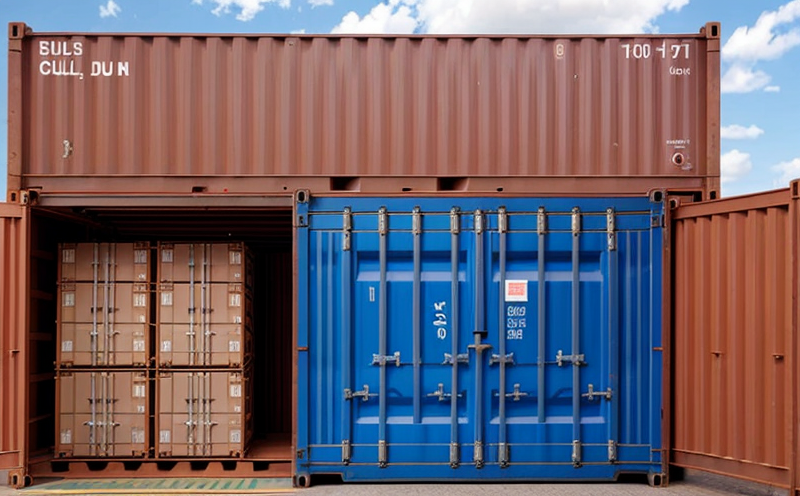USP Packaging Material Biocompatibility Testing
The United States Pharmacopeia (USP) is a leading authority in setting standards for pharmaceuticals, biologics, and excipients. One of the key areas within USP lies in ensuring that packaging materials are safe and compatible with drug products to prevent contamination or adverse interactions during storage and distribution.
Biocompatibility testing ensures that packaging does not leach harmful substances into the drug product, thereby maintaining its integrity and efficacy. This is critical for pharmaceutical manufacturers as it helps them meet regulatory requirements while ensuring patient safety. The test evaluates whether a packaging material can come into direct contact with a drug substance without causing adverse reactions.
Our laboratory uses advanced analytical techniques to perform this testing according to USP standards, focusing on key parameters such as extractables and leachables analysis. This process involves simulating real-world conditions that the packaging will encounter during its lifecycle, including temperature, humidity, and exposure to light. By doing so, we can predict potential risks associated with the use of a particular material.
The testing procedure typically begins with selecting appropriate test samples based on the type of drug product being packaged. Once selected, these samples undergo rigorous extraction processes using solvents that mimic actual storage conditions. After extracting suspected contaminants from the packaging materials, they are analyzed for their presence in the solution through various analytical methods like HPLC, GC-MS, and ICP-MS.
Our team of experts then interprets these results to determine if any identified substances could potentially interact adversely with the drug product. If issues are found, our recommendations help manufacturers select safer alternatives or modify existing formulations to ensure compatibility. This service plays an indispensable role in safeguarding public health by preventing adverse effects caused by incompatible packaging materials.
Moreover, this testing aligns closely with broader quality assurance efforts within pharmaceutical production facilities. By incorporating biocompatibility assessments into their standard operating procedures (SOPs), companies can proactively address potential hazards before they become actual problems. This proactive approach not only enhances product safety but also fosters trust among consumers who rely on these medications.
Our commitment extends beyond mere compliance; we strive to offer innovative solutions tailored specifically towards enhancing overall product performance and reliability. Through continuous research and development, we stay ahead of industry trends ensuring that our clients have access to cutting-edge technology when it comes to packaging material biocompatibility evaluation.
Benefits
Ensuring the safety and compatibility between pharmaceutical products and their packaging materials is crucial for both manufacturers and consumers. By conducting USP Packaging Material Biocompatibility Testing, you can:
- Avoid Liability Risks: Protect your organization from legal issues related to product liability.
- Promote Consumer Confidence: Build trust with customers by demonstrating adherence to stringent safety standards.
- Ensure Regulatory Compliance: Stay current with evolving regulations and guidelines set forth by reputable bodies like USP.
- Increase Product Lifespan: Identify potential flaws early on, allowing for timely corrections that prolong the life span of your product.
- Foster Innovation: Encourage development of new materials or processes through thorough evaluation procedures.
Why Choose This Test
- Comprehensive Analysis: Our lab offers detailed evaluations using multiple analytical techniques to ensure accuracy and reliability.
- Expertise: Leveraging years of experience, our team provides specialized knowledge in this field.
- Custom Solutions: We tailor our approach based on your specific needs, offering personalized recommendations for improvement.
- State-of-the-Art Facilities: Utilizing advanced instruments and methodologies allows us to achieve precise results consistently.
- Cost-Effective: While maintaining high quality standards, we strive to keep costs competitive with other providers in the market.
Use Cases and Application Examples
| Use Case | Description |
|---|---|
| Development Phase | Evaluating new packaging designs for compatibility with experimental drug candidates. |
| Manufacturing Process Optimization | Determining optimal storage conditions to minimize leaching risks during production runs. |
| Quality Assurance Audits | Verifying compliance with USP requirements through periodic audits of existing packaging systems. |
| Application Example | Description |
|---|---|
| Pharmaceutical Blister Packaging | Analyzing aluminum foil used in blister packs to ensure it won't interfere with the active ingredients. |
| Polyvinyl Chloride (PVC) Containers | Testing PVC containers for leachable substances that might affect injectable medications. |
| HDPE Bottles | Inspecting high-density polyethylene bottles to confirm their compatibility with oral liquid formulations. |





